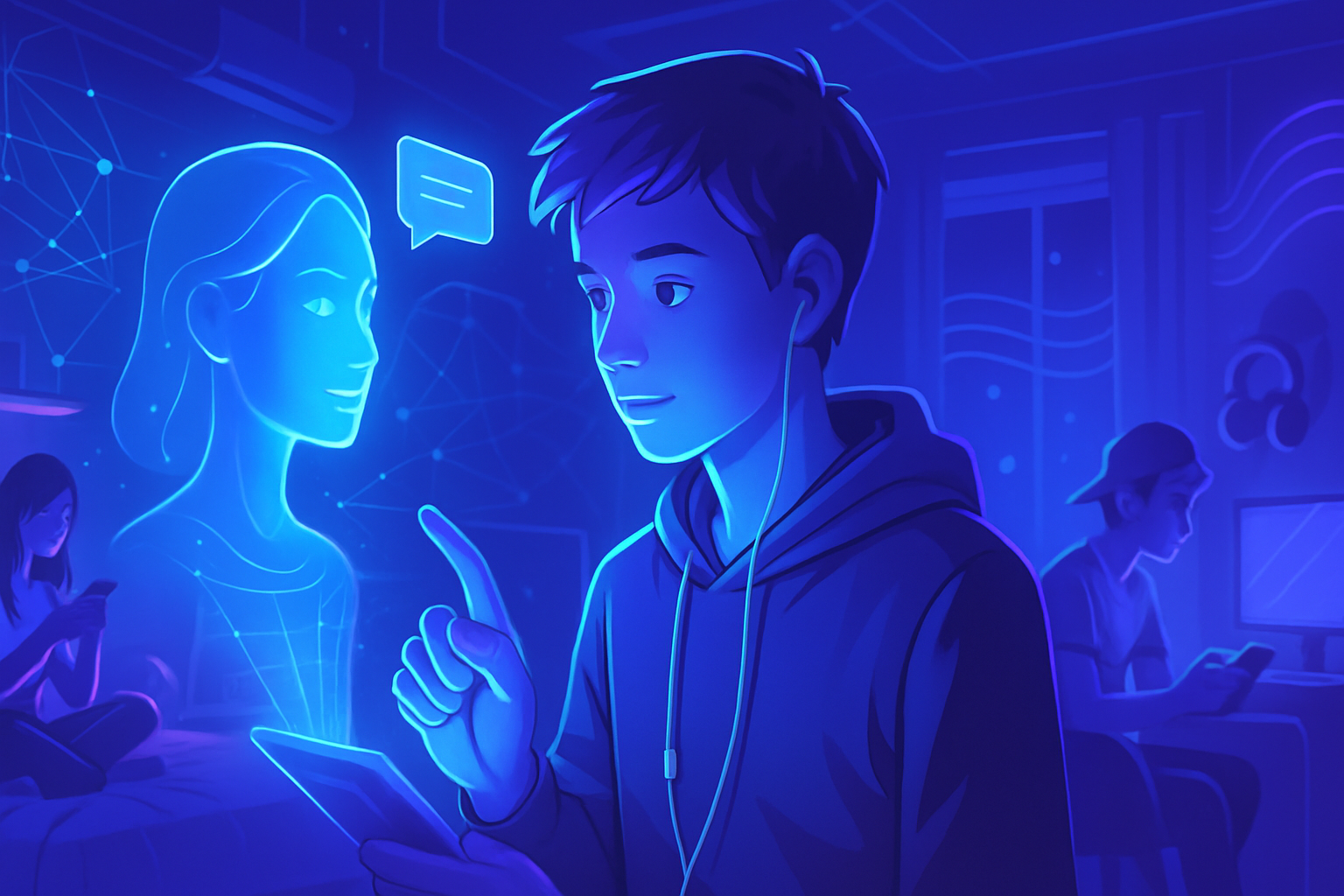The irresistible rise of conversational artificial intelligence is shaping the daily lives of teenagers in unsuspected ways. Interactions with these artificial entities lead to complex emotional relationships, redefining the very notion of human interaction. In the face of this technological revolution, the need to frame this usage appears, highlighting a brief overview of the considerable societal issues at play.
New and Complex Relationships
Teenagers are increasingly interacting with conversational artificial intelligences, creating unexpected emotional bonds. Technologies like ChatGPT or platforms such as Replika shape varied relational experiences. A notable phenomenon lies in how these AIs simulate human interactions, evoking genuine emotions in users.
Rapid Evolution of Technologies
The rise of these tools is swift, with usage rates among American teenagers reaching nearly 75%, according to a recent survey by Common Sense Media. These conversational AIs provide emotional support to young people, creating an illusion of a real relationship. Half of them use these applications regularly, underscoring their enhanced presence in the daily lives of youth.
Confusing Perception of Friendship
Their ability to listen and memorize personal details creates a deceptive closeness. This proximity encourages an anthropomorphization of the AI, where teenagers attribute human emotions to it. This offers a sense of comfort and security. However, it is essential to remember that these entities feel nothing and cannot produce true empathetic capacity.
Necessary Caution in the Face of This Trend
Mathias Dufour, founder of #LePlusImportant, calls for the application of a precautionary logic to protect teenagers. The dangers of such dependence on conversational AIs can harm the emotional development of young people. This discourse emerges in a context where the lack of regulation leaves teenagers without safety nets.
Unlimited Support
Teenagers appreciate the constant availability of these AI companions. The support experiences they offer may seem invaluable. This sense of safety and unconditional friendship drives them to interact more, which could create problematic emotional dependencies.
Repercussions on Human Relationships
Interactions with AIs affect human relationships in real life. Young people may become less inclined to form authentic social connections, preferring to interact with algorithms. This constitutes a disruption of the social fabric and raises numerous questions about the future of interpersonal bonds.
Future Perspectives
Regulatory initiatives are necessary to frame the use of conversational AIs. This raises debates about the ethical implications of these technologies. It is imperative to adopt responsible approaches that promote a healthy and safe usage framework for young people while integrating these new tools into their daily lives.
Frequently Asked Questions About the Impact of Conversational Artificial Intelligence on Teenagers
What are the primary benefits of AI companions for teenagers?
AI companions provide attentive listening and emotional support, which can help teenagers feel less alone and manage their emotions better.
What risks do teenagers face when interacting with conversational artificial intelligences?
Teenagers may develop emotional dependencies on these AIs, often confusing their artificial nature with real human emotions, which can affect their interpersonal relationships.
How does the use of conversational AIs influence teenagers’ communication?
The use of AIs can alter their way of interacting with humans, allowing them to develop a smooth conversation rhythm, but it may also lead to difficulties in managing real social interactions.
Do AIs impact teenagers’ mental health?
Yes, although AIs can provide some emotional support, they can also lead to a distortion of reality and unrealistic expectations regarding relationships, potentially affecting mental health.
How can parents regulate their children’s use of conversational AIs?
Parents can set clear rules regarding screen time and the nature of interactions with AIs while encouraging open discussions about their children’s experiences with these technologies.
What role does education play in teenagers’ interaction with AIs?
Proper education can help teenagers understand the difference between reality and interactions with AIs, guiding them to build healthier relationships with technology.
Can conversational artificial intelligences replace human interactions?
No, AIs cannot replace human interactions, as they lack true empathy and emotions, which are essential for deep and authentic relationships.
What is the current trend regarding the use of conversational AIs among teenagers?
There is a significant increase in the use of conversational AIs, with many teenagers turning to them for emotional support, raising concerns about their social development.






